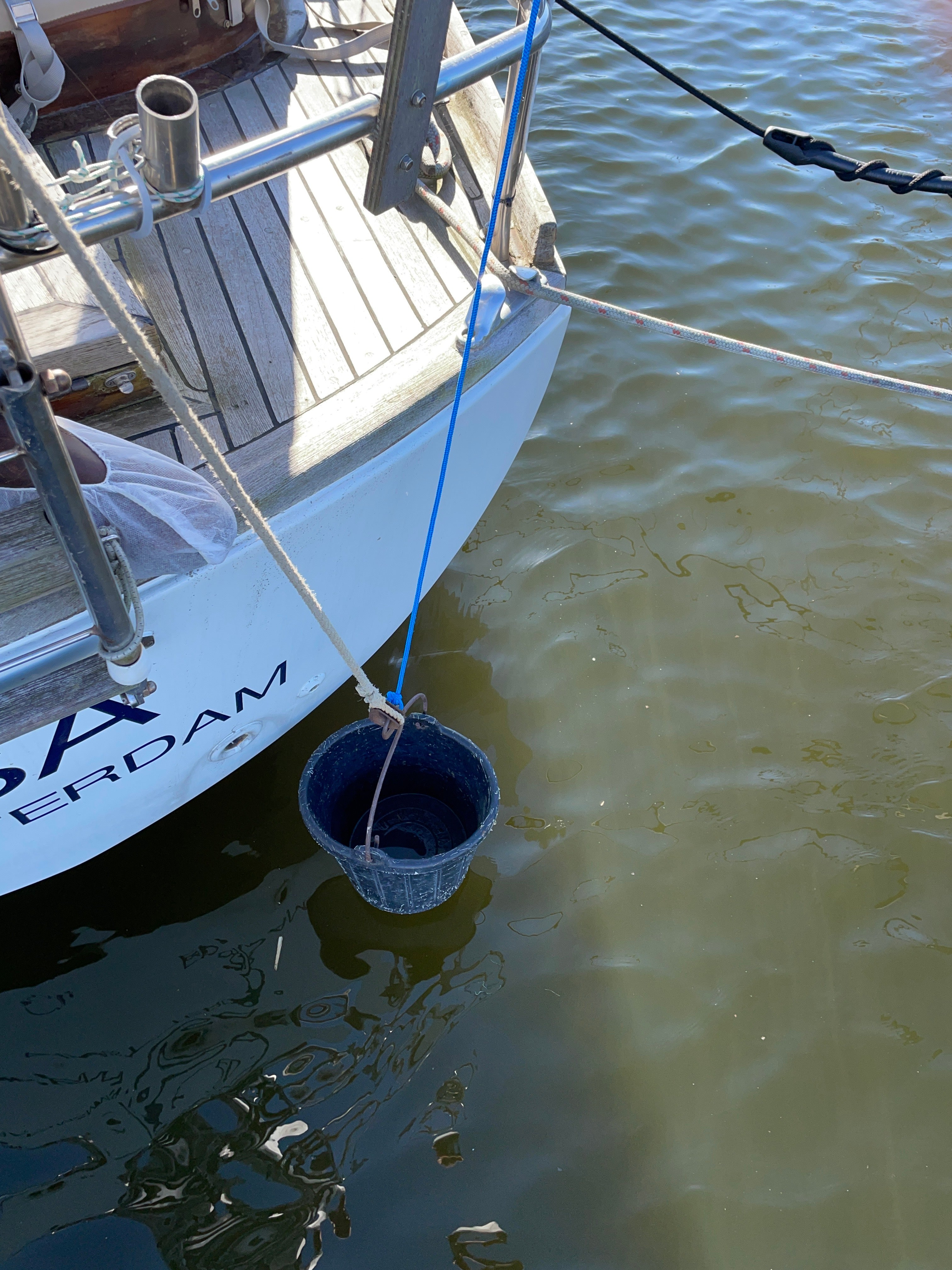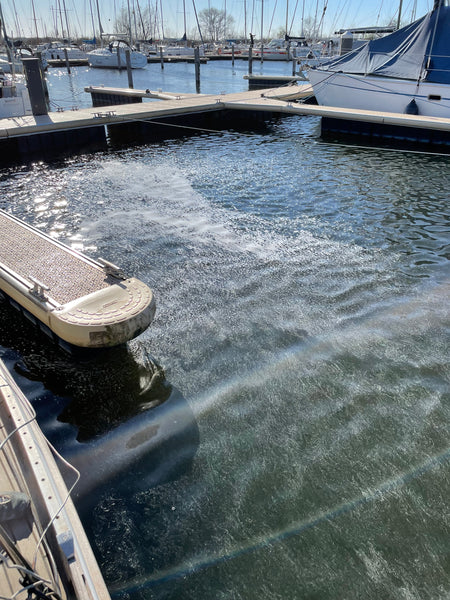
Keeping antifreeze out of our seas.
As Sailors, we try not to dump anything in our seas. Common sense, right, and not all that hard if we put our minds to it.
But there’s one yearly ritual that we may have overlooked that is actually polluting our waters in a big way: it's the opening season’s first trip.
Our crewmate, Erik, explains...
You know the feeling - you’re about to set sail for the first time after a long and cold winter. You’ve likely done some good work on your boat, and you are ready to reap the rewards. Or you’ve just dusted her off from a well deserved hibernation. Any which way, you’re ready to go. You do the check-ups, you hope she’ll start, you turn the key, the old diesel picks up, and off you go, out of the marina, into the wide open blue. There is no better feeling.
Except for one thing: you may have just dumped 2-3 litres of antifreeze into our mother ocean.
Anywhere that winter temperatures are likely to reach below zero Celsius, many of us sailors store our boats with some antifreeze in the engine. You may know the drill: to prevent the engine’s cooling system from freezing over and bursting ducts, pouring some of that brightly coloured liquid in and closing the valves helps to preserve our engine systems over the cold months. And then, on that first spring day, we open them up again, replacing the antifreeze with external water to cool our engine, and off we go.

Now, most manufacturers say that their antifreeze doesn’t harm the environment and that propylene glycol, its official name, is biodegradable. But if it didn’t come from the ocean, we shouldn’t be putting it in the ocean. As an example, antifreeze prevents water from freezing…
If we look at the numbers, we see that this is not an issue to be taken lightly - estimates say that in the Netherlands alone, recreational boating is responsible for dumping about 500.000 litres of antifreeze into surface waters every spring. This equals 15 shipping containers of antifreeze!
Another simple calculation offers an even more shocking number: there are over 6 million boats kept in European waters. Even if only 20% of those boats dump two litres of antifreeze into the water every Spring, that would amount to roughly 54 shipping containers full of antifreeze entering our seas. That’s a lot of shipping containers worth of chemicals, 324 metres long or choose to stack them, it would be a 162m high tower of antifreeze. Ouch.
"Even if only 20% of European boats dumped two litres of antifreeze into the water every Spring, that would amount to roughly 54 shipping containers full of antifreeze entering our seas. That’s a lot of shipping containers worth of chemicals."
So, this weekend upon starting my boat’s engine for the first time this season, I chose a different tack (instead of the yearly ritual of letting the antifreeze spill into the marina and just hope the label was right about it being biodegradable but feeling very odd about it at the same time). I tried to catch it in a bucket. I think I was mildly successful. At least I now have some tips for you and I’m very curious about your experiences.
Here goes:

- I started by tying a bucket under my engine’s exhaust. I used two pieces of line in a v-shape to prevent the bucket from going all over the place in the wind.
- I let my friend start the engine so I could make sure the bucket would be in the right place when the antifreeze would start spilling out - two persons are recommended for this job.
- I was a bit taken aback by the sheer amount of foam that started filling my bucket (see movie clip). Apparently, the antifreeze gets diluted with cooling water and it takes more than a 10 litre bucket to completely rinse the cooling system clean. As you can see, I couldn’t avoid some spillage when the bucket was full. Ouch again. Next time I’ll have a second bucket ready.


- Once I had a bucket full of antifreeze, I started roaming the Marina to find a place to get rid of it in a sensible way. Now my marina (Muiderzand) is a Blue Flag Marina which it recognises it's responsibility to be blue-minded.
- In the marina, there’s ample place to leave batteries and smaller chemical waste like paint cans and even used oil. All recyclables are collected separately. Good job, Marina Muiderzand!
- But, where to dump 10 litres of foaming antifreeze? Luckily, this marina had a place for camper vans to empty their chemical toilets - this was my rescue.
Antifreeze is a necessity at high latitudes and it is possible to ensure we keep it out of the sea.
With a bit of practice and some preparation, it only takes an extra 15 minutes per boat to collect engine water for the first time in Spring, AND, we all get karma points for helping keep our ocean clean.
We depend on clean and healthy oceans, so let's be Clean Sailors.
Sailors, what do you think?
- What do you think of antifreeze manufacturers’ claim that there’s no harm in dumping antifreeze into the water?
- We have heard of completely organic products like Vake. We’d like to hear your experiences with these kinds of products. https://sailspecials.nl/winter/vake-organische-drinkwater-antivries/
- Have you tried to catch your antifreeze in a bucket and do you have tips?
- Does your marina have a facility to get rid of your antifreeze? If not please drop us a line, we may be able to help through our Cleaner Marina project!
